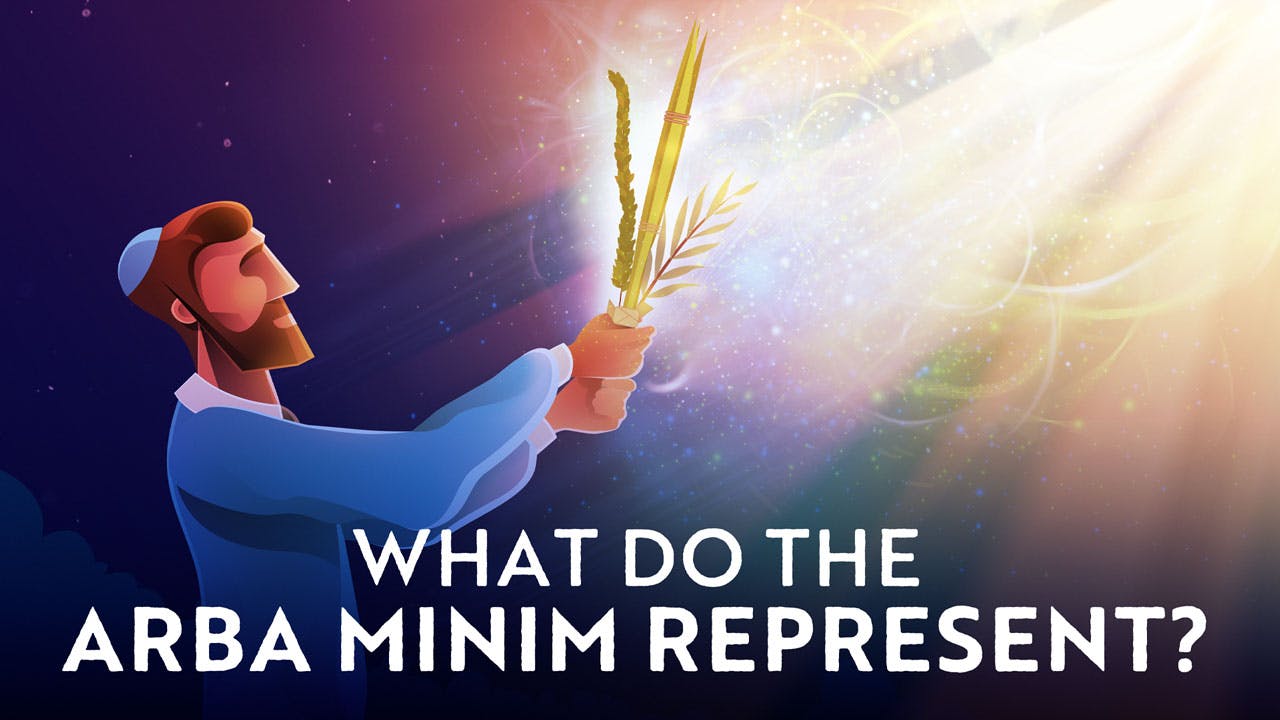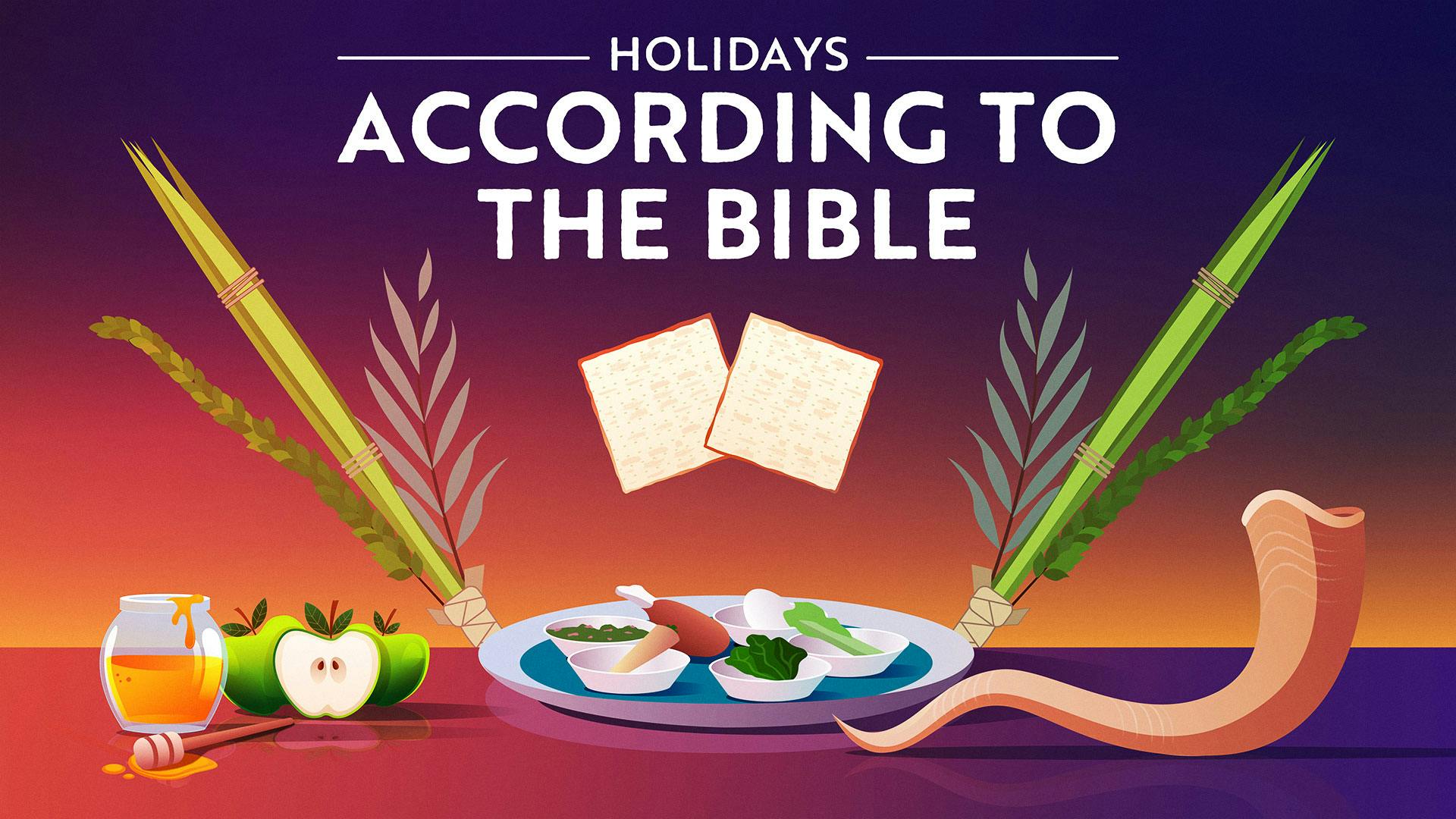Sukkot 2024: 3 Inspiring Videos to Watch for the Holiday
Discover hidden meaning in this beloved Jewish holiday.
BY Susannah Schild | September 12, 2024 | 5 Minute Read

How to Prepare for Sukkot 2024
Sukkot must be one of everyone’s favorite holidays. After our intense prayers on Rosh Hashanah and Yom Kippur, Sukkot can be an immense relief, a chance to relax. It feels like we’ve got a clean slate, and are ready to start the year fresh.
Not only that, but Sukkot is a supremely fun holiday.
Just as fall weather arrives, we get to pretend we’re epic outdoorsmen and build a cool shelter in our backyards. The holiday involves delicious smelling (albeit slightly strange) natural symbols like the lulav and etrog, which we carry with us when we set out for the morning. The kids love it too. For one week, we decorate our huts with their elaborate artwork and paper chains, and we get to sleep out under the stars.
But if Yom Kippur has just passed and we’re beginning anew, we should probably spend some time thinking about what we want our fresh start to look like. Over the High Holidays, we focused on getting closer to God through our prayers. Now that we’ve achieved that closeness, we’d like to hold onto it. Can Sukkot help us do that?
As a matter of fact, the unusual customs of the Sukkot holiday are so much more than just fun ways to celebrate - they contain deep meaning, messages that can help us live more connected and inspired every single day of our lives. Now is a great time to discover what those deep messages are, before the hustle and bustle of the holidays begins.
Aleph Beta has inspirational Sukkot videos that will clue you in to a side of the holiday you may not have known about. They’ll show you the hidden meaning behind Sukkot and its practices. You’ll also discover ways to maintain that closeness to God throughout the holiday and beyond.
Here are our 3 most illuminating videos for Sukkot 2024:
If you have time for just one video, let this one be it.
In the Torah, the Shalosh Regalim, or Three Festivals, all seem to get about the same amount of attention. The high status of the Pesach holiday makes sense - The Holiday of Freedom celebrates the time when our nation was born, when we were freed from Egyptian slavery and were allowed to serve God as a people. Shavuot, or the Holiday of the Torah, commemorates the moment when we heard directly from God and received our treasured Torah. That too seems worthy of a serious celebration.
But Sukkot stands out from the other holidays. Otherwise known as Chag Zman Simchataynu (The Holiday of our Rejoicing), it’s kind of a mystery as to what exactly we’re so happy about. According to tradition, the Sukkot holiday celebrates the time we made sukkot (little huts) in the desert, after we left Egypt. I’m sure those huts were nice and all, but is this moment really worthy of an entire seven-day celebration? And why does that celebration deserve to be called, The Holiday of Happiness?
In this video by Rabbi Fohrman, you’ll come to understand what Sukkot is really all about. If we tune into the messages found in Torah, we’ll understand why this is a ten-star holiday, one that is truly worth devoting seven days of celebration to.
Video #2: What Do the 4 Minim Represent?
On Sukkot, we carry an odd array of nature’s produce in our arms. The Torah is very specific about exactly which items we must sanctify: lulav, etrog, hadasim, and aravot (palm, citron, myrtle, and willow). But if you’ve ever carried the arba minim (4 species) into a regular, secular environment, you probably felt a little strange. If someone asked you why you were carrying those four plants, you might not even be able to explain it.
Perhaps there might be some deeper meaning to why the Torah chose these specific plants, as opposed to anything else…say, a dozen red roses. Is it something about the way these plants grow? Or the place that they grow?
Most of us are so removed from agriculture and farm life, that we wouldn’t even know about these nuances of nature. These days, fruits and vegetables are picked off the grocery store shelves, not out in the fields.
So how can we get to know our official Sukkot produce a little bit better? In this 4 part series, you’ll learn about how the 4 Species (arba minim) tie into the greater theme of the holiday. With a look back at the fruit picked by Eve in the Garden of Eden, we’ll get a glimpse into what these 4 species are actually trying to teach us, and how we can get closer to God by understanding their significance.
Video #3: An Epic Understanding of the Jewish Holidays
Sukkot is one of the Shalosh Regalim (Three Festivals). Did you know that the Torah likens these Three Festivals to Shabbat? That makes some sense: On the holidays, we abstain from work and the creative process. We take a moment to stop and devote time to God, just like we do on the Sabbath. But could there be a deeper connection?
It’s worth noting that the Shalosh Regalim aren’t just about the Exodus story; they’re also agricultural holidays. Sukkot is known as Chag HaAsif, (The Holiday of Ingathering), when we collect our wheat and produce at the end of the summer season.
How do these different themes fit together?
This video featuring Rabbi Fohrman will help answer those questions. You’ll also take a deeper look at Parshat Emor (Parshat HaMoadim, which we read on Sukkot), and find out what the Jewish Holidays are really all about. Discover how Shabbat, the agricultural cycle, and the Shalosh Regalim are all intertwined, and what practical messages we can learn from this connection:
Make Sukkot 2024 a Meaningful Holiday
No matter how you slice it, Sukkot is a great Jewish holiday. The symbols, the practices, and the long break from regular life make it something we look forward to every year. By adding a bit of Torah inspiration into your Sukkot experience, you’ll be able to hold onto the high of the High Holidays just a little bit longer. This year, feel the deep happiness of Chag Zman Simchataynu.
A Deeper Look
For more incredible insights from Rabbi Fohrman, check out these Sukkot related videos and podcasts:
- After learning about the meaning of Sukkot, you may want to find out…the rest of the story! In this video, find out how Hoshanah Rabah adds another layer of meaning to the complex puzzle of the Sukkot holiday.
- For a deeper dive into the complete holiday cycle, check out this premium course by Rabbi Fohrman. The Deep Connection Behind the Biblical Holidays takes the concepts from the short video up above and turns them into a mind-blowing series of lectures.
- We sing it on every holiday. But What is Hallel? This series of lectures develops this question, to help us understand the purpose of the prayer using clues from the life of Moses and the story of the Jewish people.
(You’ve just begun your journey to a more meaningful Sukkot. Don’t give up now! Learn about the backstory behind the Priestly Blessing, or Birkat Kohanim, which we say every holiday in shul.)
What is Aleph Beta?
Aleph Beta is a unique kind of Torah library. Led by our founder, Rabbi David Fohrman, we are dedicated to high-level, textual Torah learning for adults that is intellectually and spiritually sophisticated, that enlivens your Jewish practice and helps you forge a deeper connection to God. Whether you’ve been learning in yeshiva for years or you’re just beginning your Torah journey, you’re sure to find something meaningful and surprising waiting for you here.
Browse our library of over 1,000 beautifully produced animated videos, podcasts, deep dive courses, and printable guides. Topics include the weekly parsha, Jewish holidays & fast days, laws & mitzvot, prayers, relationships, big philosophical ideas and more. Have something to say at the Shabbos table that will amaze your family and guests and bring deep meaning into their lives.




